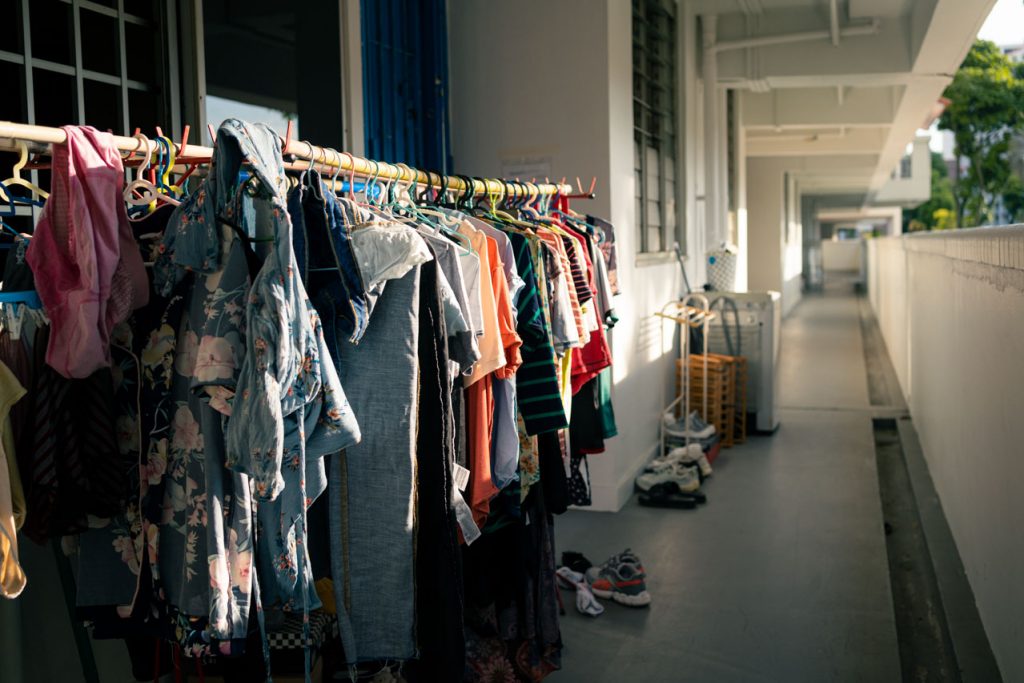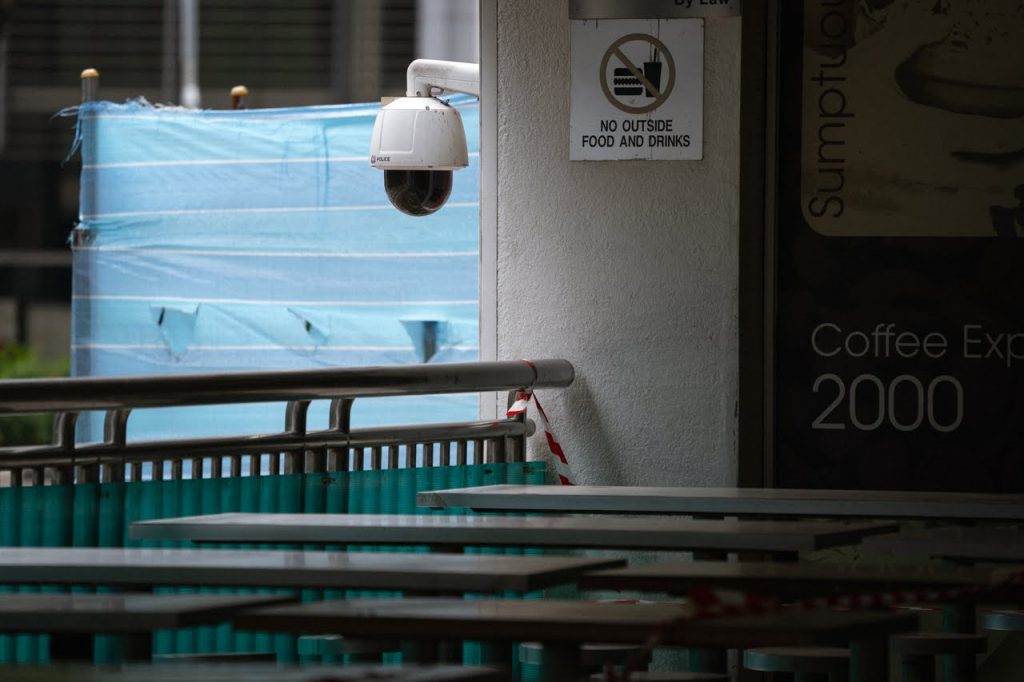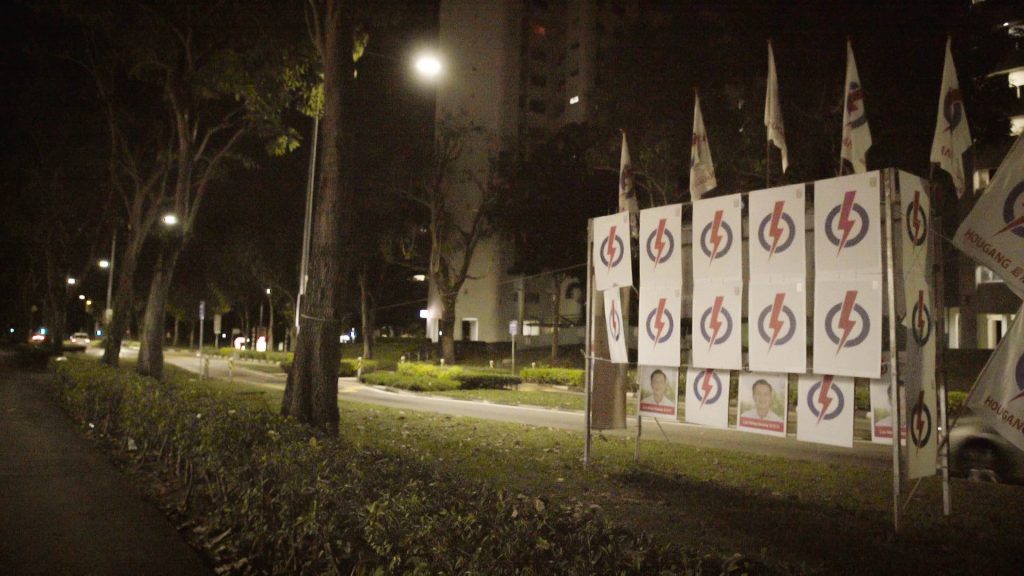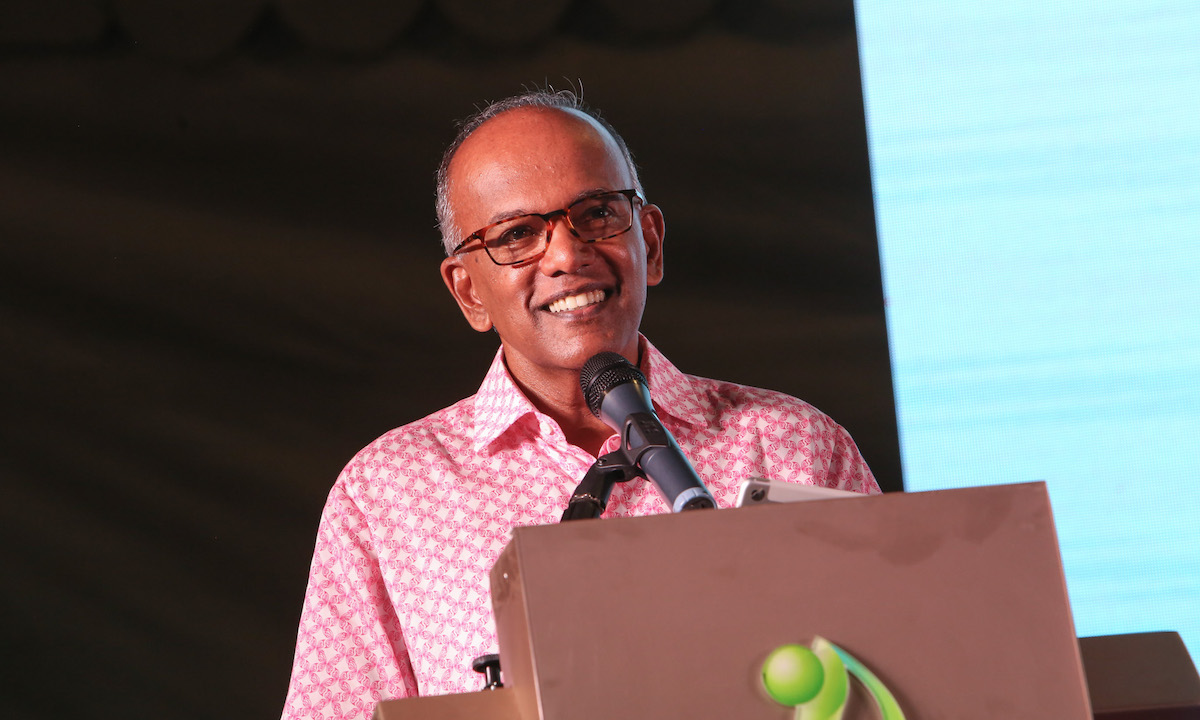Top Image: K Shanmugam SC / Facebook
Law and Home Affairs Minister K. Shanmugam hurries to the microphone after Minister for Culture, Community and Youth Edwin Tong ends his clarification after being asked about Singapore Land Authority’s processes for improvement works. Deputy Speaker Christopher De Souza had just given the floor to NCMP Hazel Poa.
But her turn in Parliament would have to wait.
“Deputy Speaker, Sir, since this relates to me in a way, can I be permitted to add to this?” Minister Shanmugam asks, bent on responding to a question about how the Singapore Land Authority (SLA) “scopes and awards contracts to different entities”.
Black-and-white bungalows at 26 and 31 Ridout Road have come under public scrutiny in recent weeks. The respective properties are currently rented by Minister Shanmugam and Foreign Minister Vivian Balakrishnan.
This full-blown political spectacle first started as a series of allegations by opposition politician Kenneth Jeyaretnam. The Reform Party Secretary-General suggested that leasing state-owned black-and-white bungalows to politicians could constitute a conflict of interest, whether actual or apparent.
The ministers were cleared of any wrongdoing in an investigative report. The dust over the Ridout Road properties had barely settled when Kenneth Jeyaretnam stormed in again. This time, without evidence, he speculated about a plausible connection between Minister Shanmugam’s home improvement works and Minister Shanmugam’s son.
Ravindran Shanmugam leads the South East Asian Operations of Livspace, an interior design and home renovation company headquartered in Singapore. Mr Jeyaretnam speculated that renovation works at 25 Ridout Road, Minister Shanmugam’s residence, were completed by Livspace.
“You get these utterly false and defamatory statements,” Minister Shanmugam remarks. “If you want to come after me, you come after me. I am perfectly capable of defending myself. And they will find out I will defend myself.”
“But leave my family alone.”
Airing One’s Dirty Laundry in Public?
Minister for Manpower Tan See Leng, seated directly behind Minister Shanmugam, nods in agreement. Members of Parliament sat stoically, unperturbed. No one’s snoozing this time.
That wasn’t the only time Minister Shanmugam marched to the mic to say his piece. Put in the spotlight, he has no choice but to vigorously address valid questions over the management of the SLA, a statutory board under the purview of a Ministry headed by Minister Shanmugam.
Operational concerns aside, Singaporeans honed in on the optics between a public figure tucked away in a large private property and the common layperson. Minister Shanmugam, anticipating the backlash, reaffirms his commitment to helping Singaporeans of different socioeconomic classes.
“No one raised any issue of my empathy or my ability to serve in the 10 years I was living in my GCB (good class bungalow) in Astrid Hill,” he explains. Information about his private life in Astrid Hill never bothered Singaporeans. So why hasn’t 26 Ridout Road been the same?
While they both concern the hot-button topic of property, they are entirely different issues in the eyes of the common Singaporean. His residence at Astrid Hill was irrelevant because there was no reason for Singaporeans to believe that it affected his public duties—there was no perceived conflict of interest.
His black-and-white bungalow at Ridout Road, however, presents a different picture. Concerns over the abuse of power or access to privileged information underlined mainstream discourse. In a country which prides itself on incorruptibility, it’s only natural for its citizens to question it under the uncertainty of allegations.
Unlike the black-and-white bungalows, there is no hard and fast rule over what areas of a public figure’s life should stay as private information. Context matters.

Public’s Surveillance
Sharing the unnerving glare of the spotlight was Minister Balakrishnan. He is currently renting a black-and-white bungalow along 31 Ridout Road. He described his interview with the Corrupt Practices Investigation Bureau as “the most uncomfortable, invasive, intrusive [and] thorough process.”
When Mr Jeyaretnam made his allegations about the Ridout Road properties, public attention crawled along the quiet roads of Ridout and disturbed the peaceful estate. Prying eyes sought to uncover the ins and outs of the two Ministers’ private lives.
While some private information could be important to the public, Ministers have a right to privacy.
That being said, their public-facing jobs mean that the same right to privacy is not absolute. It doesn’t mean that every gritty detail should be shared with the public. That would be frighteningly close to a Black Mirror episode.

But in some cases, private information offers insights into their character, which is valuable for citizens. Michael Palmer, former member of Pasir-Ris Punggol GRC, resigned after admitting to an extramarital affair to avoid “embarrassment” to the PAP. Then there’s the story of Ivan Lim, who withdrew from contesting in the GE2020 elections after allegations about his past behaviour.
Private information can offer insights into a public figure’s character. And that should be shared.
Ministers Shanmugam and Balakrishnan, in front of an unfeeling Parliament, shared a peek into their private lives. Not because they wanted to but because the conversation required it. Minister Shanmugam shared his rags to riches story—from rental flat to GCB. Minister Balakrishnan talked about his family’s needs.
Of course, sharing private details with a faceless audience is a double-edged sword. Their emotional vulnerability might be lauded as a show of strength. On the other hand, their narrative could be seen as a way to regain lost political capital.
That may be the case. But Mr Jeyaretnam took the principle to an extreme. Even he himself could not be certain of a connection between Minister Shanmugam’s home improvement works and Livspace. But he speculated anyway.
Without any conclusive evidence, his questions produced no useful information. Baseless allegations rarely do. Instead, he played into a culture of voyeurism with his claims.

Yes, We Should Care
Unfortunately, Minister Shanmugam must bite the bullet and accept that information about his son has now been audited by the glare of the public. But some positives can be gleaned from the debacle.
The public and members of the public service alike were given a crash course on what “conflict of interest” actually means. Prime Minister Lee Hsien Loong announced a review of declarations of property transactions for public figures. After all, more stringent checks lead to stronger confidence in the land’s highest decision-makers.
Drawing the line between what information should be public and private in an issue about public corruption is an impossible task.
A minister’s private life becomes our business when the common person believes that information about their private life helps us better understand how they function in their public role or to improve the public system altogether.
In the same vein, that kaypoh-ness seems to be justified in the case of Ridout Road.







